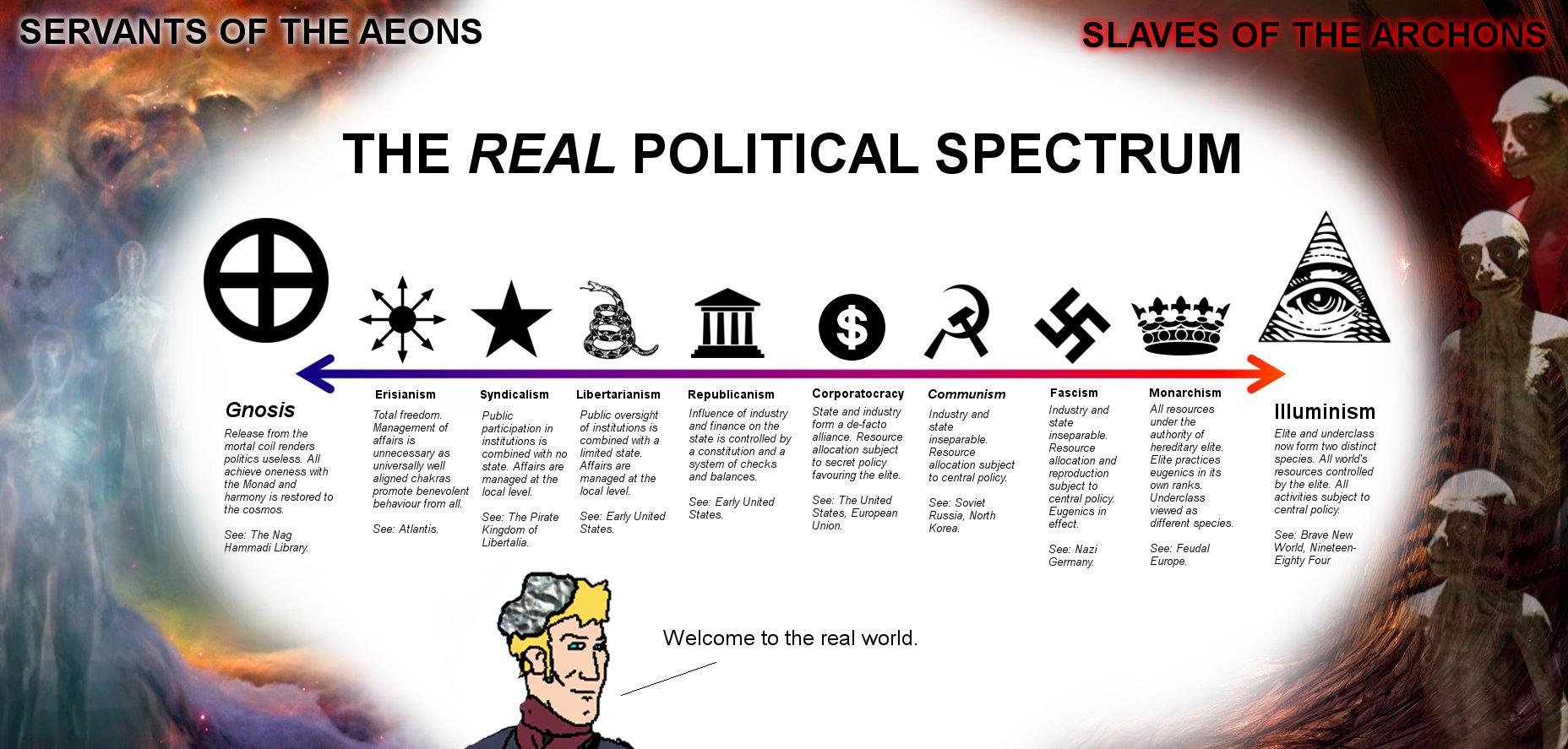Politics
Political Systems
- Illuminism
- Monarchism
- Fascism
- Communism
- Corporatocracy
- Rebulicanism
- Libertarianism
- Syndicalism
- Erisianism
- Gnosis
- Anarchism
Introduction
The roots of political science and history often arise during times of crisis. Many foundational philosophers addressed crises in their respective eras, laying the groundwork for modern-day political thought.
Historical Context
- Rome and Christianity: Saint Augustine grappled with the upheavals in Rome due to the rise of Christianity.
- Philosophy of History: Hegel's work provided a comprehensive view of the historical process.
Challenges to Traditional Political Science
In the contemporary era, there is an urgent need to evolve from past philosophies and establish a new approach to political science.
Critique of Positivism: The positivist approach to political science, which heavily relied on a single method, has been criticized for its exclusionary nature, disregarding any knowledge that doesn't fit its stringent scientific criteria. This has been perceived as a limiting and potentially misleading method.
- Philosophers like Hussero and Sasare have critiqued the positivist inclination, providing alternate perspectives on political theory.
Objective Analysis: As emphasized by Pierre Bourdieu, a truly objective study of political science should encompass all value judgments and viewpoints, recognizing all forms of cultural capital and preventing biases.
The Positivist Dilemma
Positivist proclamations, claiming their method as the only objective one, inadvertently demarcate a divide between the “hard” and “soft” sciences, potentially diminishing the value of human and social sciences. Max Weber, an anti-positivist, stressed the multiplicity of causes and the richness of human understanding, arguing against a singular causal approach.
Voegelin and Symbolic Representation
Voegelin asserted that humans derive meaning through symbols, emphasizing the need to analyze symbols as they manifest in reality. He believed:
- Representation encompasses the entirety of society, with each symbol holding immense societal weight.
- Articulation is a crucial component of representation and is intrinsically tied to history, reflecting the evolution and revolutions of political societies.
Governance and Articulation
Sir John Fortescue coined the term “eruption” to denote the initial articulation of a society, highlighting the necessity of a governing entity. This concept evolved to represent the transition from a symbolic to existential representation of governance, indicating the necessity of a leading figure who encapsulates the essence of the society.
Cosmological Empires and Truth
Voegelin examined how early empires in Eastern civilizations viewed themselves as representatives of a transcendent cosmic order. These empires often framed rulership in terms of aligning society with a divine or cosmic harmony. Rebellions against the ruler were thus seen as rejections of truth, with historical examples like the Behestan inscription of King Darius of the Persian Empire illustrating this concept.
Clash of Truths and Societal Evolution
Throughout history, multiple truths have often coexisted and clashed. Notable examples include the Mongol expansion threatening the Western Empire in the 13th century and the cosmological perspectives presented by Lao Tzu, Confucius, the Upanishads, and Zoroastrianism. This period, around 500 BC, with contemporaries like Heraclitus, Buddha, and Confucius, is termed as the “axis time” by Carl Jaspers.
